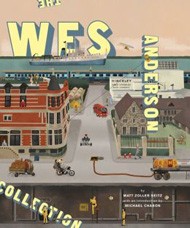
Photo courtesy of the author

Photo courtesy of the author
ALLA NAZIMOVA
ACTOR | FILMMAKER
1879 – 1945
“A WOMAN LIVING A CREATIVE LIFE IS BOUND NECESSARILY TO DO THINGS SOMETIMES DEFIANT TO CONVENTION.”
The next time you flip through the tabloids, spare a thought for Alla Nazimova. She ultimately sacrificed her celestial career by rejecting the sexual and social mores gossip mags still try to define.
After a tough childhood in Crimea, teenage Adelaida Leventon escaped her abusive father to study acting in Moscow with the great Stanislavsky. She arrived in New York in 1905, changed her name to the more exotic Nazimova, and began thrilling Broadway with a series of theatrical victories.
As a bisexual Jewish immigrant and outspoken feminist, Nazimova courted controversy simply by existing. The boldly pacifist stance of her first movie, 1916’s War Brides, only increased her notoriety. Naturally, audiences were fascinated by her.
She channeled her fame and ambition into a radically avant-garde adaptation of Oscar Wilde’s Salomé, which she not only starred in but also wrote, produced, and directed. It failed miserably, in part because of the astonished (though unsubstantiated) whispers that she’d hired only gay men in homage to Wilde.
Indeed, dangerous rumors had long been growing around Nazimova and her “Garden of Alla,” the estate she owned on Sunset Boulevard. Though she pretended to marry Salomé collaborator Charles Bryant for custom’s sake, she barely bothered to hide her lesbian relationships (with trailblazers Dolly Wilde, Eva Le Gallienne, and Dorothy Arzner, among others).
Her famous friends often came to stay at the Garden for months, and word had it that half of Hollywood was indulging in outrageously hedonistic excess on her property. She also hosted the industry’s “Sewing Circle,” a group of famous gay and bisexual women. A few, like Tallulah Bankhead, were open about their personal lives. But most, including Greta Garbo and Marlene Dietrich, knew they had too much to lose.
Indeed, Nazimova paid a heavy price for her independence. The expenses of Salomé nearly bankrupted her, and her scandalous reputation limited her options. But she found a warmer embrace in the theater, where critics and audiences remained awed by her talent. And today, Salomé is considered an essential work of early experimental and LGBTQ cinema — an outcome nobody would have predicted in 1923 Peoria.
Learn more about Renegade Women in Film and TV and purchase it here.
Reprinted from Renegade Women in Film and TV. Copyright © 2019 by Elizabeth Weitzman. Illustrations by Austen Claire Clements. Published by Clarkson Potter/Publishers, an imprint of Penguin Random House LLC.
Elizabeth Weitzman is a journalist, film critic, and the author of more than two dozen books for children and young adults. She currently covers movies for The Wrap, and was a critic for the New York Daily News for 15 years. In 2015, she was named one of the top critics in New York by the Hollywood Reporter.



